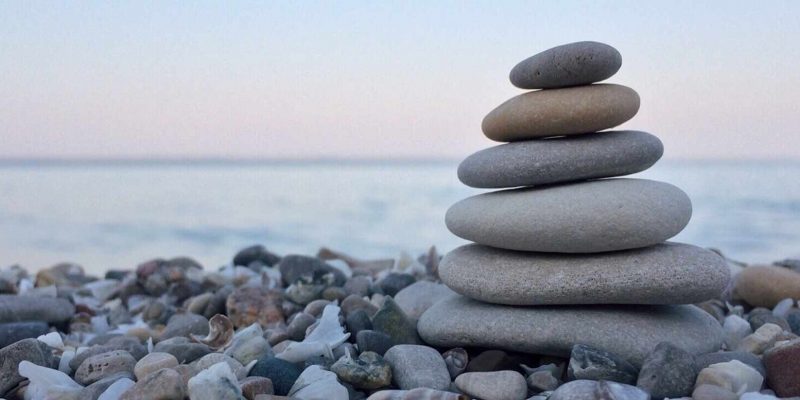"Every team has someone who is the weakest link."
Back in my Six Sigma engineering days, the work I was doing to fix emergency quality problems in the factory regularly meant stopping the production line - which cost $2,000 per minute. [You read that right.]
So when we were fixing problems, we always looked for the weakest link in the process first, a quick win, to buy us time to find and fix the real root cause.
And I had an experience of this this week.
On Sunday night, a fox got all of our chickens. First time in ten years.
We're gutted. We're vegetarian, so our 'girls' were there to de-slug the veg patch, lay the occasional egg (they were older, ex-battery hens) and provide us with on-tap mindfulness meditations, watching them forage their way through the day.
They were in a huge run with fox-proof fencing dug down 60cm, and 2m high deer fencing, to keep them safe.
So how did the fox get in?
We've always known that the weakest link is the gate...
... or rather, a human remembering to close the gate.
And the gate got left open by one of us on Sunday evening - we got distracted by busyness and stress.
In teams, there's often someone who is considered to be the 'weakest link' - the one who gets stressed, the one who struggles to get everything done, the one who isn't fulfilling their potential, the one who doesn't speak up with their ideas, who worries about things and misses deadlines.
But here's a thought:
What if they're not 'weak'? What if, in fact, the problem is that they've been strong for too long?
So often in these situations, that person is, in fact, really struggling with burnout or Imposter Syndrome. They're not weak. They've been too strong for too long, trying to push on through the fear and exhaustion.
Pretty much every coping strategy ever invented to 'handle' Imposter Syndrome or burnout makes them worse (which is why I don't teach them).
So the person who is struggling is actually working harder than everyone else, but getting less impressive results. There are neuroscience and physiological reasons for why this impacts their performance.
What if they're secretly lying awake at 3am, worrying that they'll be 'found out' as 'not good enough'? [aka Imposter Syndrome]
What if they're feeling too emotionally, mentally and physically exhausted to think straight, and are worried that they're just one spinning plate away from smashing them all? [aka burnout]
And what about the people who everyone else thinks have got their act together...
... but their 3am self-talk is telling them that *they* are the weakest link in the team...
... and they're terrified that 'today is the day my luck will run out'?
They've got their very own Anne Robinson-voiced inner critic telling them that one day people will find out that they're the weakest link.
Yes, sometimes we hire or move someone into a role that's simply not a great fit. But, according to my research, in this kind of situation, there are usually three factors at play:
1. Culture
How does the organisation's culture and expectations fit with that person's needs?
Are they supported to thrive? Or being kicked into survival mode, drowning in coping strategies?
Toxic resilience (bounce-back, gritted teeth, toughen-up resilience) is rising, since the pandemic, and research we're currently conducting shows that 38% of respondents are currently working for organisations that score 'high' on the Toxic Resilience Scale™.
This needs to become a key metric for ensuring employees' psychological safety at work.
2. Environment
The environment is the physical-world embodiment of the organisation's culture.
Is the person working in a Toxic Team? Does hot-desking trash that person's productivity? Are Teams pings triggering hypervigilance and the fight-flight-freeze response, 300 times a day? Do they feel under constant pressure to respond in minutes, being distracted by every message?
When did they last get time to actually do their work, instead of attending back-to-back meetings, without a comfort break?
3. Personal Habits
Is the person struggling with Imposter Syndrome?
Are they heading towards burnout?
(Here's our 2022 Burnout Research Study white paper).
Do they need practical, proven support with their confidence?
All of these factors have solutions. But the first step needs to be to look beneath the surface-level symptoms, and to talk to whoever is struggling, to find out what is really going on.
If you're not sure how to approach this discussion, I've got a free advice guide for you here, including the five super-common pieces of advice to avoid, and how to move beyond 'tea and sympathy', so that you can support that person in creating change.
The research I have carried out over the past four years shows that Imposter Syndrome rates have gone up by a fifth, and that toxic resilience-led burnout is perhaps the single biggest challenge facing organisations, both for performance, productivity and psychological safety, and also for staff retention, in a time when filling vacancies is becoming increasingly difficult.
What's The Alternative To Toxic Resilience?
My Natural Resilience Method® is a research-backed, proven five-step process that can turn Imposter Syndrome and burnout around, in just a few weeks, by supporting people with creating change in their personal habits and environment.
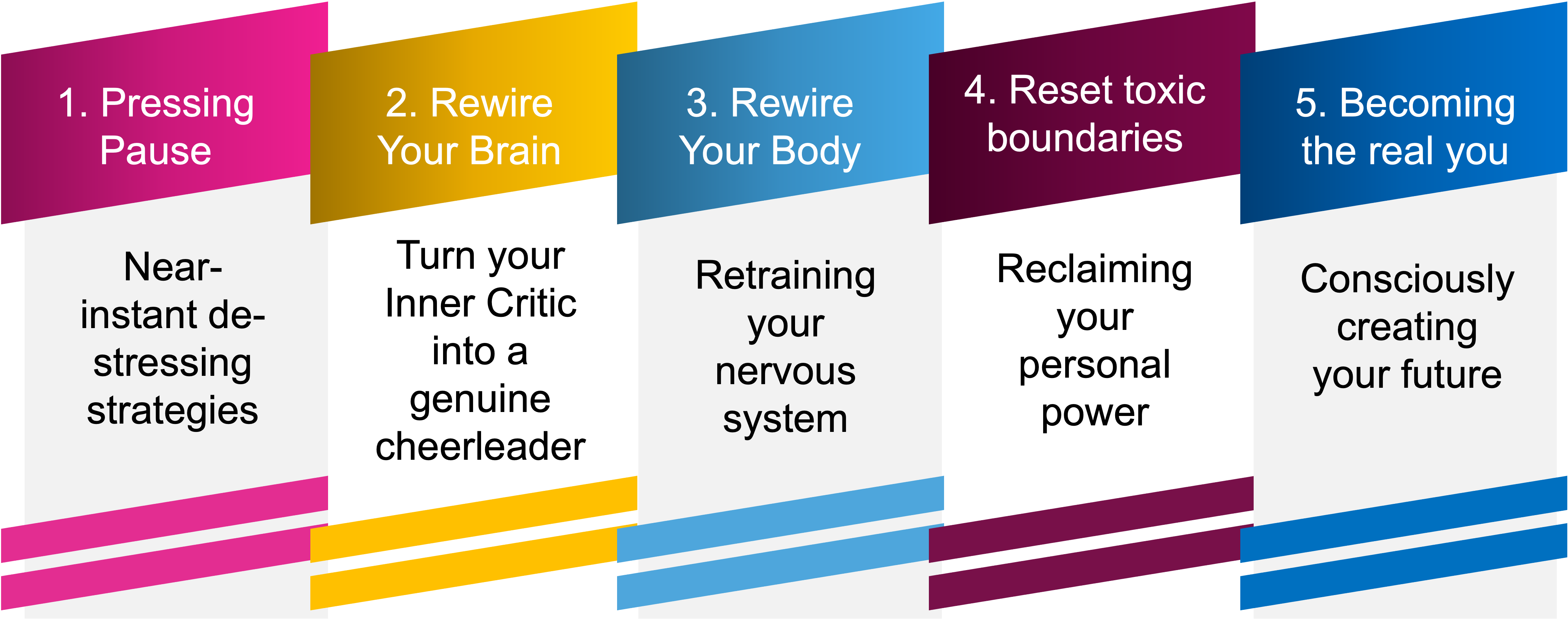
© Clare Josa
But that, alone, is not enough to solve the toxic resilience problem. Companies - and leaders - need to have the courage to make the cultural and environmental changes that support people in thriving, not surviving.
With the Natural Resilience Method®, I can also work with organisations to assess their Toxic Resilience Scale™ score, determining which of the hidden drivers would be quick-win solutions, and what can be done longer-term to bring this score down.
If you would like to find out more about what you can do, as an individual, as a leader, as a company, please get in touch to book a call.
Clare Josa is considered the UK's leading authority in Imposter Syndrome, having specialised in the area for 20 years, including publishing the best-selling book, Ditching Imposter Syndrome, and two international research studies.
To work with her to support your teams, please get in touch here.

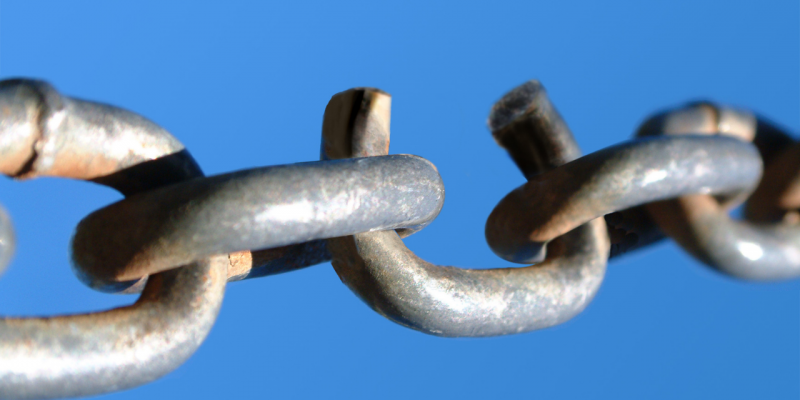

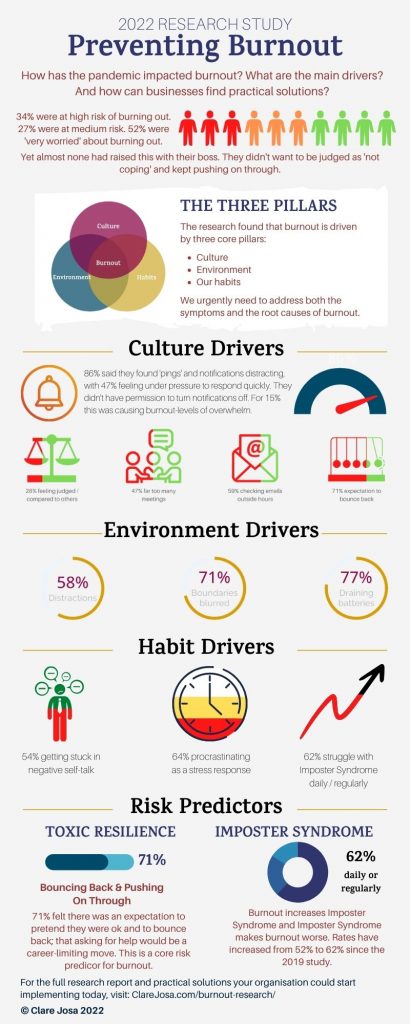





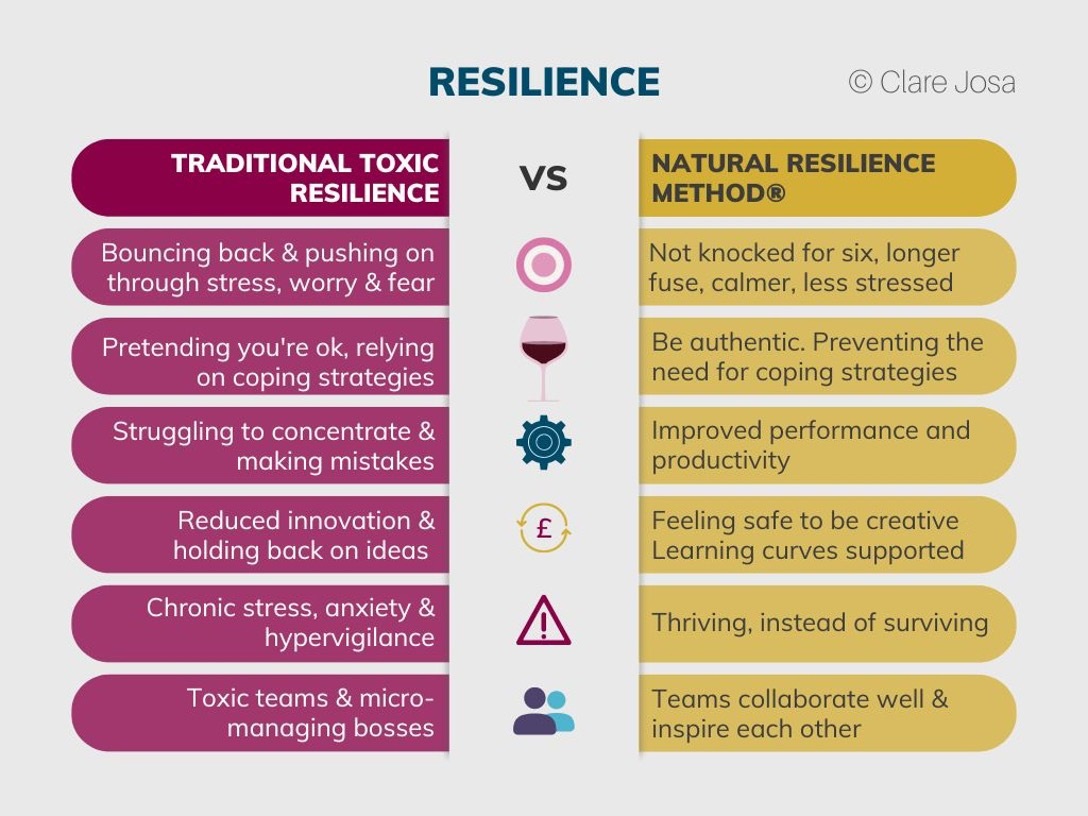

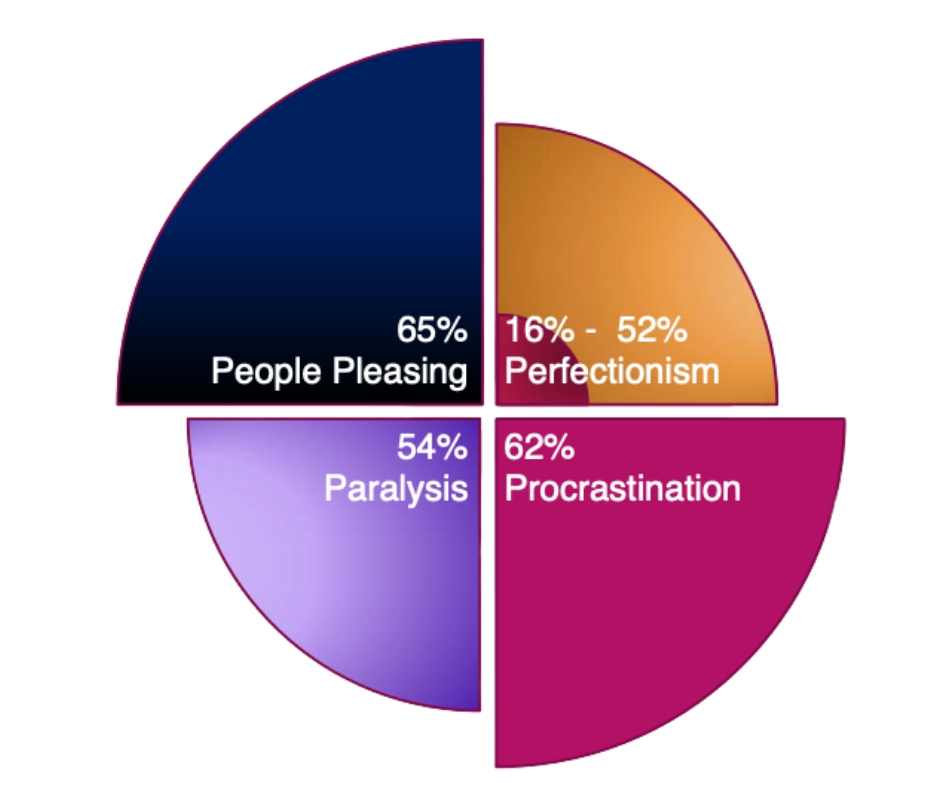







 Culture
Culture

